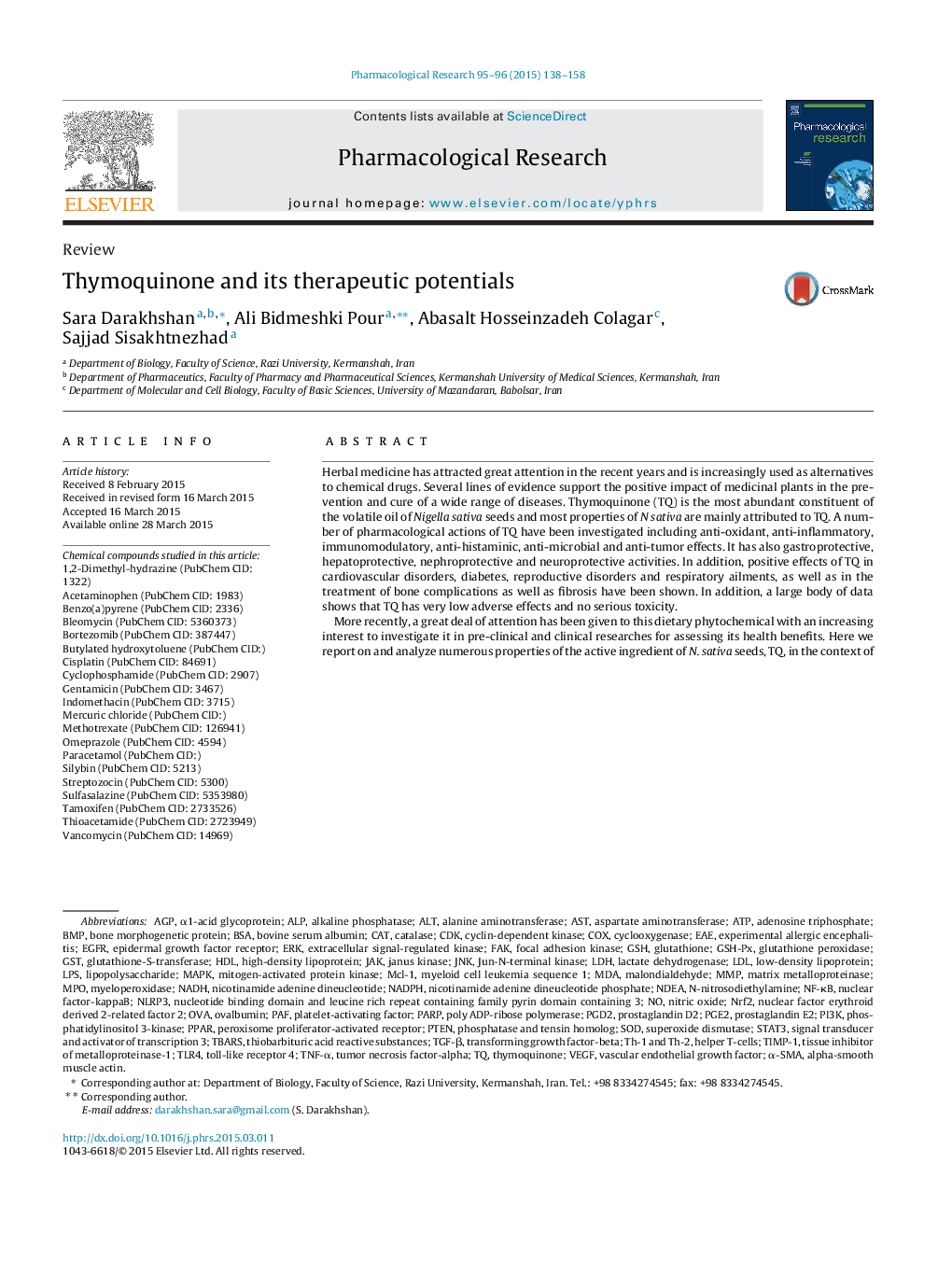| Article ID | Journal | Published Year | Pages | File Type |
|---|---|---|---|---|
| 2561913 | Pharmacological Research | 2015 | 21 Pages |
Herbal medicine has attracted great attention in the recent years and is increasingly used as alternatives to chemical drugs. Several lines of evidence support the positive impact of medicinal plants in the prevention and cure of a wide range of diseases. Thymoquinone (TQ) is the most abundant constituent of the volatile oil of Nigella sativa seeds and most properties of N sativa are mainly attributed to TQ. A number of pharmacological actions of TQ have been investigated including anti-oxidant, anti-inflammatory, immunomodulatory, anti-histaminic, anti-microbial and anti-tumor effects. It has also gastroprotective, hepatoprotective, nephroprotective and neuroprotective activities. In addition, positive effects of TQ in cardiovascular disorders, diabetes, reproductive disorders and respiratory ailments, as well as in the treatment of bone complications as well as fibrosis have been shown. In addition, a large body of data shows that TQ has very low adverse effects and no serious toxicity.More recently, a great deal of attention has been given to this dietary phytochemical with an increasing interest to investigate it in pre-clinical and clinical researches for assessing its health benefits. Here we report on and analyze numerous properties of the active ingredient of N. sativa seeds, TQ, in the context of its therapeutic potentials for a wide range of illnesses. We also summarize the drug's possible mechanisms of action. The evidence reported sugests that TQ should be developed as a novel drug in clinical trials.
Graphical abstractFigure optionsDownload full-size imageDownload high-quality image (246 K)Download as PowerPoint slide
